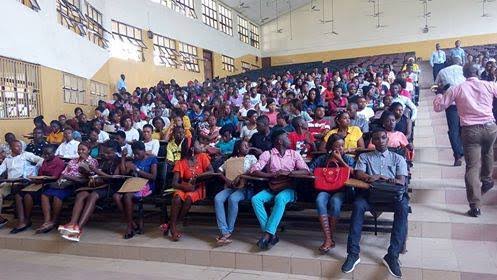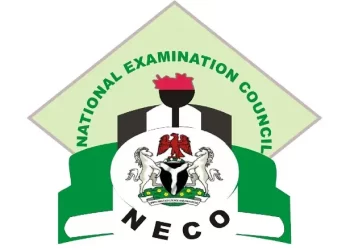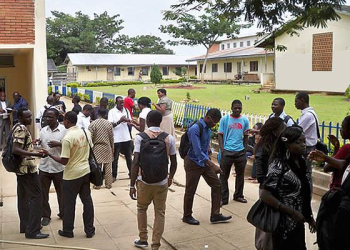DAILY GIST earlier reported that President Bola Tinubu signed students loan bill into law which will enable Nigerian students to access loans at interest-free rates.
The piece of legislation passed second reading at the House of Representatives on May 25, 2023.
In November 2022, the legislation, which seeks to provide financial assistance to Nigerian students in tertiary institutions, was passed by the national assembly.
The bill was sponsored by Femi Gbajabiamila, immediate-past speaker of the house of representatives.
It could be recalled that Tinubu during one of his campaigns had promised to give student loans as part of efforts to develop the education sector and also build the youth capacity.
The bill is expected to see the establishment of an education bank by Tinubu government.
According to the bill signed by Tinubu on Monday, students applying for loans under this Act must apply to the Chairman of the Bank through their respective institutions upon satisfying of the following conditions:
The bill will enable indigent students to access federal government loans to fund their educational pursuit or career.
Here are the benefits of the Students Loan bill to Nigerians:
1. The bill provides an interest-free loan for indigent Nigerian students in which beneficiaries will only pay back the exact amount they collect.
2. The bill offers loans for indigent Nigerian students seeking higher education in government-owned universities, polytechnics and colleges of education in the country.
3. The bill enables all indigent Nigerian students to have equal rights to access the loan without any form of discrimination arising from gender, religion, tribe, position or disability of any kind.
4. The bill states that the loan shall be given to indigent Nigerian students only for the payment of tuition fees.
5, The bill stipulates that there shall be the establishment of a Nigerian Education Bank with the objective to provide education for all Nigerians in matters pertaining to loans:
Here are the requirements that indigent Nigerian students will meet to be eligible for the Students Loan:
1. The student applicants applying for loans under the Act shall apply to the Chairman of the Bank through their respective institutions upon satisfaction of the following conditions.
2. The student applicants must have secured admission into any of the Nigerian universities, polytechnics, colleges of education or any vocational school established by the Federal Government or the government of any Stale of the Federation.
3. The student applicants’ income or family income must be less than N500,000 (five hundred thousand naira) per annum.
4. The student applicants must provide at least two guarantors: each of the guarantors must be a civil servant of not less than level 12 in the service; or a lawyer with at least 10 (ten) years post-call experience; a Judicial officer; or a Justice Peace.
It is widely known that education is pivotal to the economic growth and development of any nation, and this bill will be one of the mechanisms to overhaul the educational system in Nigeria.
Each application must be accompanied by the following:
1. Copy of the student’s admission letter
2. Letter by the guarantors addressed to the chairman, governing board of the bank recommending the student for the loan and stating that he accepts the liability in the event of default.
3. Each guarantor must submit two passport photographs, the name of the employer, and evidence of being so employed by the named organisation.
4. Each institution must ensure that all applications from its school reach the bank not more than 30 days after the close of admission for the academic year.
5. Where the guarantor is self-employed, he must provide particulars of his business as registered with the CAC or any other appropriate authority.
A student can be disqualified from accessing a loan if:
1. He is proven to have defaulted in respect of any previous loan granted by any organisation.
2. He has been found guilty of exam malpractice by any school authority.
3. He’s convicted of a felony or any office involving dishonesty or fraud
4. He has been convicted of drug offenses
5. Any of his parents has defaulted in respect of a student loan or any loan granted to him or her.
For repayment of the loan:
1. Any beneficiary of the loan shall commence repayment two years after completion of NYSC
2. Repayment shall be by direct deduction of 10% of the beneficiaries salary at source by that employer and credited to the students’ loan account.









